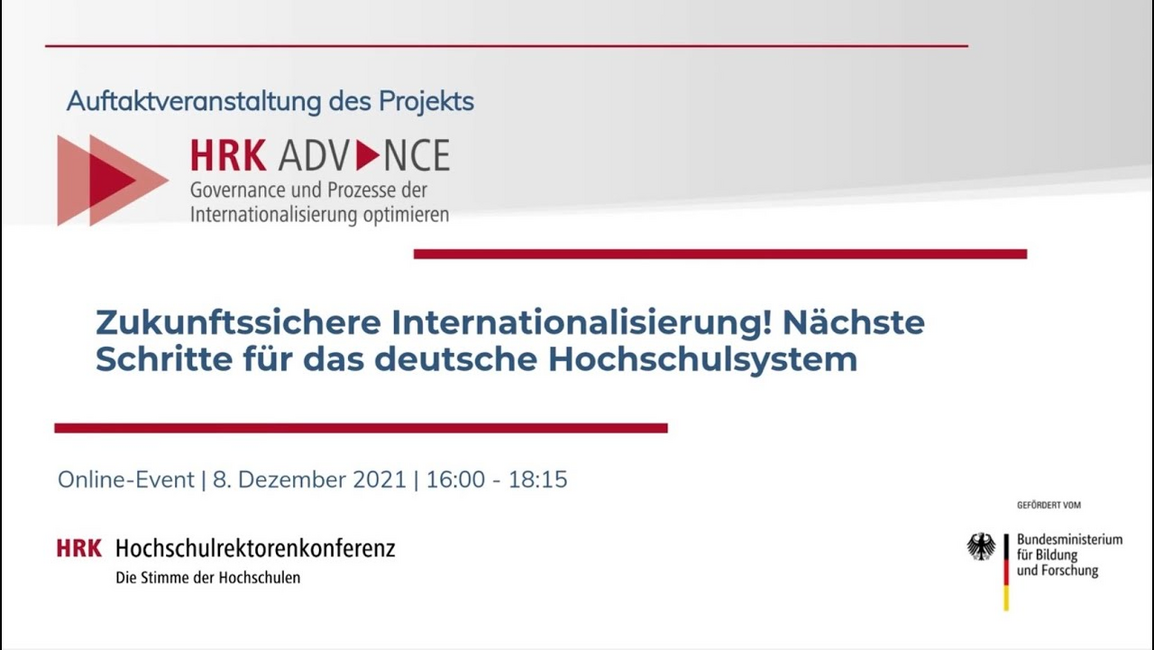Optimising Governance and Processes of Internationalisation
The project “HRK ADVANCE Optimising Governance and Processes of Internationalisation” was designed to enhance the internationalisation of German universities and push for innovation in essential fields of action. It focused on specific organisational and legal questions regarding international cooperation on an institutional and systemic level. The project was funded 3.5 years by the Federal Ministry of Education and Research (BMBF).
The project ...
- commissioned external (legal) expertise regarding specific topics, based on which expert groups devise and compile assistance manuals;
- guided by quality control measures complemented the manuals with best practice examples;
- disseminated the results through a series of workshops and thematic conferences to an interested academic audience;
- keeps the project results available as a long-term resource via this website.
Goal
The goal of the HRK ADVANCE Project was to recalibrate the action of universities in the field of internationalisation, allowing the German model of internationalisation to meet contemporary challenges and to react flexibly to future developments. The target audience are mainly German universities. However, the project aims to inform crucial political actors on federal and state level as well.
Topics
The project is structured into three distinct clusters. The first cluster covers questions of governance of internationalised teaching and started in the winter of 2021. The second cluster looks at issues of governance of internationalisation of the academic personnel and started in the spring of 2022. The third cluster addresses the governance of international university cooperations potential and started in spring 2023.
First cluster: Governance of internationalised teaching
Teaching and study programmes at German universities evolve under the influence of internationalisation processes. This yields new challenges for teachers, students and administrative staff, yet also opens up opportunities for the organisation and configuration of programmes and curricula.
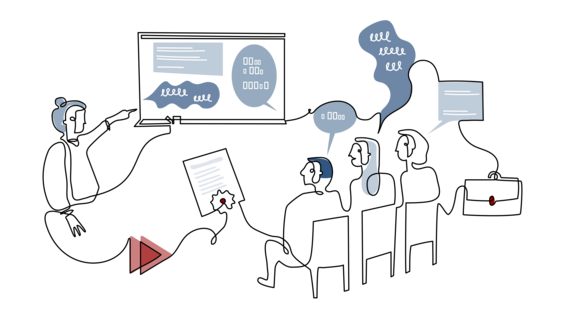
Multilingualism in study programmes
The project focuses on legal and organisational frameworks of the implementation of multilingualism in study programmes. What challenges and potentials exist to establish programmes based on multiple languages in the context of an internationally connected science system and a global labour market?
Virtual study programme elements
The second topic analyses organisational conditions of access to and virtual participation of international students in study programmes and exams in Germany. What are the legal issues of allowing students based in other countries to participate in courses and exams and how can their status at the German university be defined in relation to existing enrolment regulations?
Second cluster: Governance of internationalisation of the academic personnel
Considering their status as transnational actors universities increasingly face challenges of the emergence of a globalised science system. On the one hand, universities as organisations must navigate a global labour market in recruiting their personnel, on the other hand these changes create new opportunities for cooperation and teacher mobility.
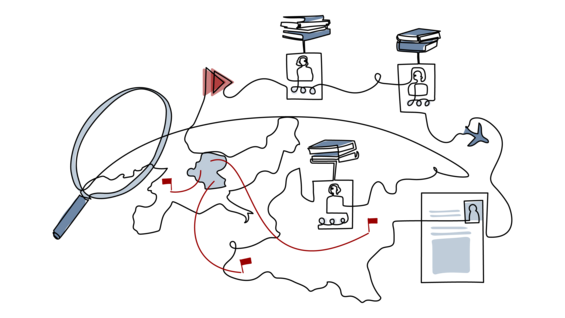
Recruitment of international professors
This topic examines the governance of attracting and appointing international professors. International professors are key actors to enhance internationalisation processes in research and teaching at higher education institutions. What challenges and strategic approaches can be identified in trying to attract foreign scientists and German researchers working abroad to take over professorships in Germany?
International teaching mobility
The second topic addresses the structural embededness of teaching mobility as part of international higher education cooperations. What does it entail to set up a teaching position that – physically or virtually – covers different locations and study programmes?
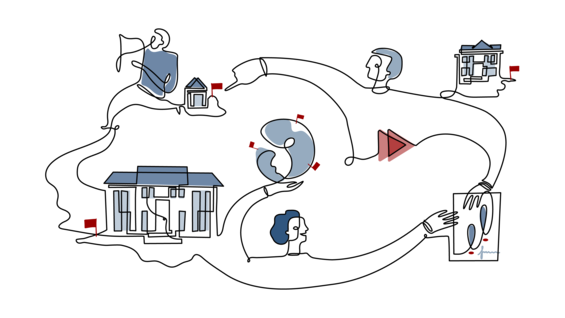
Third cluster: Governance of international university cooperations
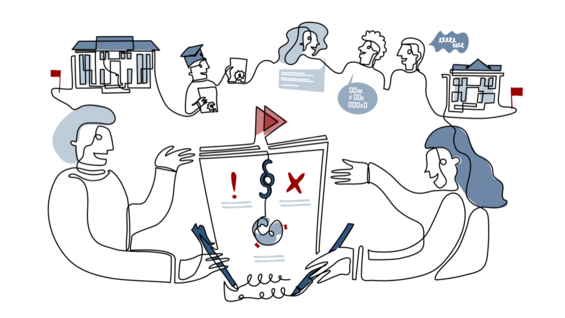
Risk management of cooperation contracts for joint study and doctoral programmes with foreign partner universities
The third cluster of the project addresses potential conflict scenarios in joint study and doctoral programmes with foreign partner universities. How can standard contractual clauses for mediation and exit options be formulated in cooperation agreements to enable German universities to act competently in the event of a conflict?
Future-Proof Internationalisation! Next steps for the academic system
The kick-off conference of the project „HRK ADVANCE – Optimising Governance and Processes of Internationalisation“ took place on 8th December 2021. The conference, titled „Future-Proof Internationalisation. Next Steps for the German higher education system“ was inaugurated by Dr. Jens-Peter Gaul, Secretary-General of HRK and Dr. Lisette Andreae, Federal Ministry of Education and Research. Keynote speaker Prof. Dr. Hans de Wit, Boston College, spoke on global perspectives on the future of internationalisation in higher education, followed by a discussion with a panel of experts, that included university leaders, researchers and administrative personnel touching on current challenges and needs for reforms concerning internationalisation.
Further information: Documentation of the kick-off conference (in German).
